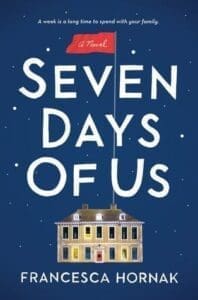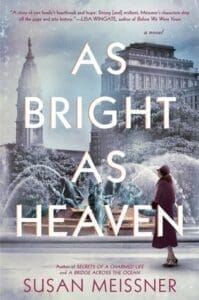The Second Mrs. Hockaday by Susan Rivers – 288 pages
Book Blurb:
When Major Gryffth Hockaday is called to the front lines of the Civil War, his new bride is left to care for her husband’s three-hundred-acre farm and infant son. Placidia, a mere teenager herself living far from her family and completely unprepared to run a farm or raise a child, must endure the darkest days of the war on her own. By the time Major Hockaday returns two years later, Placidia is bound for jail, accused of having borne a child in his absence and murdering it. What really transpired in the two years he was away?
Inspired by a true incident, this saga conjures the era with uncanny immediacy. Amid the desperation of wartime, Placidia sees the social order of her Southern homeland unravel as her views on race and family are transformed. A love story, a story of racial divide, and a story of the South as it fell in the war, The Second Mrs. Hockaday reveals how that generation–and the next–began to see their world anew.
My Review: 3 stars
The Second Mrs. Hockaday is a historical fiction mystery told in an epistolary fashion. I really like stories told in this fashion. I believe letter writing allows for more candid thoughts that come from the author’s stream of consciousness. That was probably my favorite part of the book.
The POVs of each of the many character’s letters had very individualized tones, unique language and cadences. There was never a moment when the reader didn’t know whose letter he or she was reading. There were parts of the plot that I found intriguing and others that I felt left too many unanswered questions. The first half of the book sucked me in but I slowly became unmoored from the story. The diary of the main protagonist, Placida, was written on the pages and in the margins of of Charles Dickens’ David Copperfield for lack of any other paper. Beyond the letters having the chapter names from David Copperfield, I was unsure if there was a deeper connection between the two novels.
Race, love, survival, PTSD, marriage, paternity, rape, sexism, family and legalities of the time period were all woven into this story. I hadn’t read a book about the Civil War in some time, so that made this a nice change of pace.
Quotes I liked:
How Southern I am, in that respect: still fighting my war when the battles have been lost.”


















